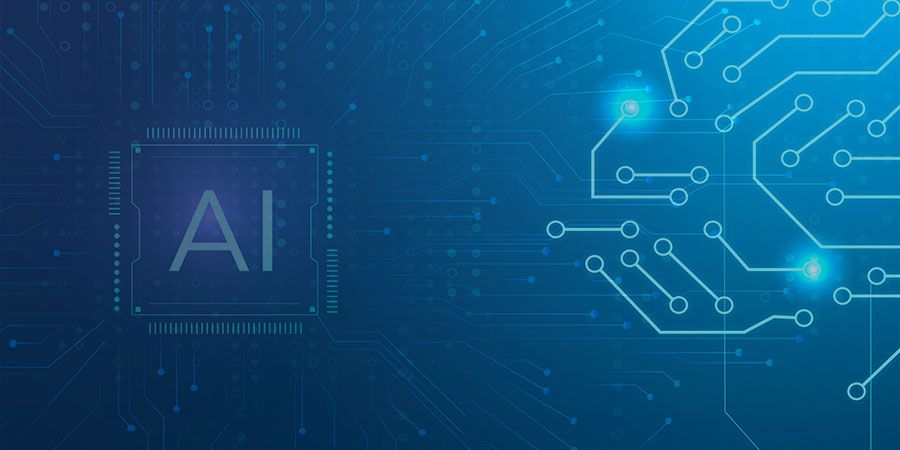


In the modern age, businesses have a shared goal of utilizing data to gain intelligence, such as identifying market opportunities, adapting to the changing workforce, and optimizing processes. As society becomes more digital, Artificial Intelligence (AI) is increasingly being used by companies across various industries to drive transformational change.
AI has become pervasive in our daily lives and can be leveraged by enterprises to collect and streamline data and improve workforce operations. Based on research from Harvard Business Review, a significant number of organizations globally are already implementing AI for automating internal systems and improving technical support for employees.
In 2023, every business will start to migrate technology with AI Integration to ease the work of employees and efficiency in managing effective and efficient work time management.
Artificial Intelligence refers to the ability of machines to replicate human intelligence and actions. Typically, AI systems are operated by analyzing large amounts of labeled training data to identify patterns and correlations, which they then use to predict future outcomes. Machine learning is the primary method used to develop AI systems today.
In addition to Artificial Intelligence (AI), other related systems are becoming increasingly important in the artificial technology landscape. Each of these systems has unique capabilities and use cases, but they all share the common goal of leveraging technology to mimic human-like intelligence and actions.
Machine Learning (ML) is a form of Artificial Intelligence that allows software programs to improve their accuracy in predicting events over time, without explicit programming. ML algorithms make predictions based on historical data as input. With this understanding, we can now examine the top AI and ML trends for 2023.
One such trend is Hyperautomation, which leverages advanced technologies to streamline processes and reduce the need for human labor and expertise. This can lead to improved customer satisfaction through automated email replies, increased employee productivity, and the integration of digital technology into operational workflows.
It can provide up-to-date knowledge of industry-specific threats to help make critical decisions based not only on what could be used to attack a business but based on what is likely to be used to attack.
This technology makes it possible to create new reliable protection methods, automate cybersecurity and make it risk-free. It is suitable for classifying, analyzing, clustering, and filtering incoming information. Machine learning can analyze past information for AI to generate the best solution to avoid threats or malware.
Another trend in AI and ML is Augmented Intelligence, involving combined machines and humans to improve cognitive productivity. It is predicted that infrastructure and operations teams will start using AI-powered automation to enhance IT efficiency which results in machines handling 50% of complex tasks in the future. With augmented intelligence, various platforms can quickly gather information by following predefined structures. Data can be collected from multiple sources, providing a comprehensive view of the product, customers, and other relevant factors.
From the aforementioned trends and concepts, it is clear that these systems have the potential to be great leverage. Here are some impacts of the advanced development of these technologies to accelerate the pace of innovation in the business world.
AI is frequently used to protect private, sensitive information and offer the foundation of security. Still, when new threats develop, a more innovative strategy is required. On the other hand, AI may adjust the system when detecting threats and other security concerns, promptly resolving them and ensuring data confidentiality.
AI is developing based on data and algorithms learn to evolve. This allows for more efficient work, deep learning networks, and improved coding, then automation is nothing but the future of business run.
AI systems work accurately in optimizing and completing repetitive tasks. Businesses use this technology to notify customers or employees of delays or projected completion times. AI may go through historical company records to identify recurring failures and notify personnel ahead.
Customer interactions may be improved and made more personal by AI. It focuses on this in particular since it may offer recommendations to a customer or staff based on how they have behaved previously. Meanwhile, AI can automate client interactions, such as a chatbot, analyzing the information gathered from previous conversations and responding with accurate replies.
AI can predict patterns of data about consumer behavior based on data analysis. Hence, future financial industry workers should anticipate seeing more AI-powered robot advisors.
Since AI and Machine Learning are becoming vital technologies that transform how businesses access and analyze data to become smarter and more efficient, IT and data science organizations are gearing up for the big benefits of AI for all enterprises.
In the other scenario, AI’s market is expanding steadily with no signs of slowing down. The future will see the usage of Artificial Intelligence in almost all industries. AI can assist businesses in growing by enabling quicker data retrieval and decision-making. However, Artificial Intelligence today is just the beginning of the new workforce transformation and the best is yet to come.